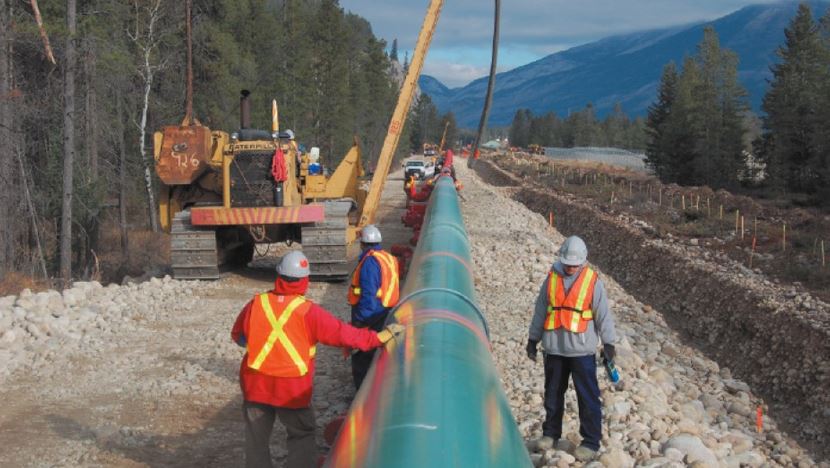What now for the Trans Mountain Pipeline?


The Canadian government is two options after the Federal Court of Appeal on Thursday quashed the approval of the $7.4 billion Trans Mountain Pipeline expansion on the basis that Canada’s efforts to meaningfully consult with indigenous people fell short.
Soon after the Appeal Court’s ruling was announced on Thursday, shareholders of Kinder Morgan Canada [KML-TSX] voted overwhelmingly to approve the sale of the pipeline and expansion project to the Canadian government for $4.5 billion.
While that would appear to be a disastrous scenario for both the Federal and Alberta governments, a Calgary based law professor takes a different view.
Nigel Bankes, Chair of natural resources law at the University of Calgary, said Ottawa has two options. It can either take the advice of the court, re-do the environment assessment and address concerns about consultations or try to appeal to the Supreme Court.
“They could proceed with both,” he said during an interview with CBC News. “The only issue, of course, is the political commitment of the federal government to push on,” he said during the interview with CBC.
Bankes estimates that it could take at least nine to 12 months to address the court’s concerns.
News of the Court of Appeal ruling comes after Ottawa struck a deal with Kinder Morgan to purchase its Trans Mountain Pipeline expansion project (TMEP) for $4.5 billion.
As part of the agreement, Ottawa pledged to fund the resumption of the pipeline planning and construction work by guaranteeing the project’s expenses under a separate Federal Government recourse credit facility until the transaction closes.
The agreement was reached just days before a May 31, 2018, deadline set by Kinder Morgan which had suspended non-essential spending due to opposition from the British Columbia government and a previous lack of clarity regarding the way forward for the project.
The original Trans Mountain Pipeline was built in 1953 and continues to operate today. The proposed expansion is essentially a twinning of the existing 1,150-kilometre pipeline between Edmonton, Alberta and Burnaby, British Columbia.
Expected to cost approximately $7.4 billion, it will create a pipeline system with a nominal capacity rising from 300,000 barrels per day to 890,000 barrels per day.
Once the sale is complete, Ottawa pledged to continue the construction on its own, with a view to selling the entire project at a future date when market conditions are right, said Canadian Finance Minister Bill Morneau.
Export Development Canada is set to finance the purchase, which includes the pipeline, pumping stations and rights of way along the route between Edmonton and Vancouver, as well as the marine terminal in Burnaby, B.C., where oil is loaded onto tankers for export.
Thursday’s court ruling set alarm bells ringing in the Albert oil patch, which is desperate to see the project completed.
The president of the Canadian Association of Petroleum Producers said the court decision would only add to Canada’s growing reputation as a country where it is difficult to get resource projects done.
“The current state of affairs in Canada is such that building a pipeline to tidewater is practically impossible,” added Alberta Premier Rachel Notley. She has responded by pulling Alberta out of Canada’s national climate change plan.
However, Prime Minister Justin Trudeau said on Twitter that he has spoken to Notley and told her that the government would continue to back the project.
“Today I spoke with Premier Notley and reassured her that the federal government stands by the TMX expansion project and will ensure that it moves forward in the right way,” Trudeau said.
Canadian Senator Doug Black recently underlined his view of the importance of Trans Mountain and pipelines in general to the Canadian economy, noting that:
- Pipeline operations added $11.5 billion to Canada’s gross domestic product in 2015, sustaining 34,000 full-time jobs.
- Twinning the Trans Mountain Pipeline will inject $7.4 billion into Canada’s economy through project spending and help our country export these resources by moving oil to the West Coast for marine transport to markets around the world.
- Combined government revenue impact for construction and the first 20 years of expanded operations is $46.7 billion.
Kinder Morgan said the parties expect to close the transaction late in the third quarter or early in the fourth quarter of 2018.
